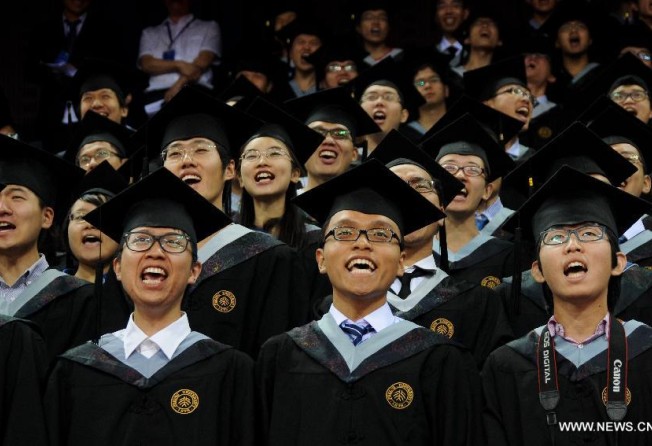Chinese government officials to give university lectures to ‘improve students’ political education’
Talks aimed at improving political education on campuses and image of officials, but some question validity if debate is not encouraged

Provincial-level government officials are being asked to give one university lecture a term to “improve the political education of students”, state media reported late Wednesday, in the latest effort seen as tightening the ideological grip on campuses.
Government leaders are advised to give their experience developing a career in politics and present a “positive image” of officials “to increase student’s trust in the [Communist] Party and the government”, Xinhua reported.
The policy has been introduced by the Central Publicity Department, the Ministry of Education and the Central Organisation Department.
Cadres were asked to prepare their class two weeks in advance and submit lecture notes to the provincial publicity department for approval, the report said.
Universities were told in January to increase the teaching of Marxism and Chinese socialism to students. In January, Education Minister Yuan Guiren urged the institutions to exert tighter control over the use of imported textbooks “that spread Western values”.
President Xi Jinping said last year that students and teachers at colleges needed greater “ideological guidance”.
But the latest guideline from the Education Ministry attracted criticism from educators and students, who argued that political education should nurture discussions of ideas.
Commenting on the move, Wang Xuming, a former ministry spokesman and now president of Language and Culture Press, questioned whether government leaders were qualified to deliver lectures that university students would find interesting.
“Most of the lectures by government leaders and some experts that I have heard are generally a straight recitation of reports and scripts alongside some PowerPoint slides,” Wang said.
“This is not a proper lecture. A proper lecture involves asking questions, addressing doubts and encouraging discussion. To pass on knowledge, to teach and to dispel doubts, can you do it?”
National Institute of Education Sciences researcher Chu Zhaohui also feared that such a blanket move would be poorly received by students.
“It’s worse than not doing it at all as students might think you are not qualified to stand there or are deceiving them,” Chu said.
A second-year Guangzhou university student studying music education said it was hard enough for students to deal with lectures on Marxism, let alone more narrow ones on political education.
“The current political education is not popular among students because it allows no platform for students to exchange their thoughts on politics,” she said.
“Everyone has different views on politics.
“It should be more liberal by touching on different political parties, views and topics in order to entice students.”